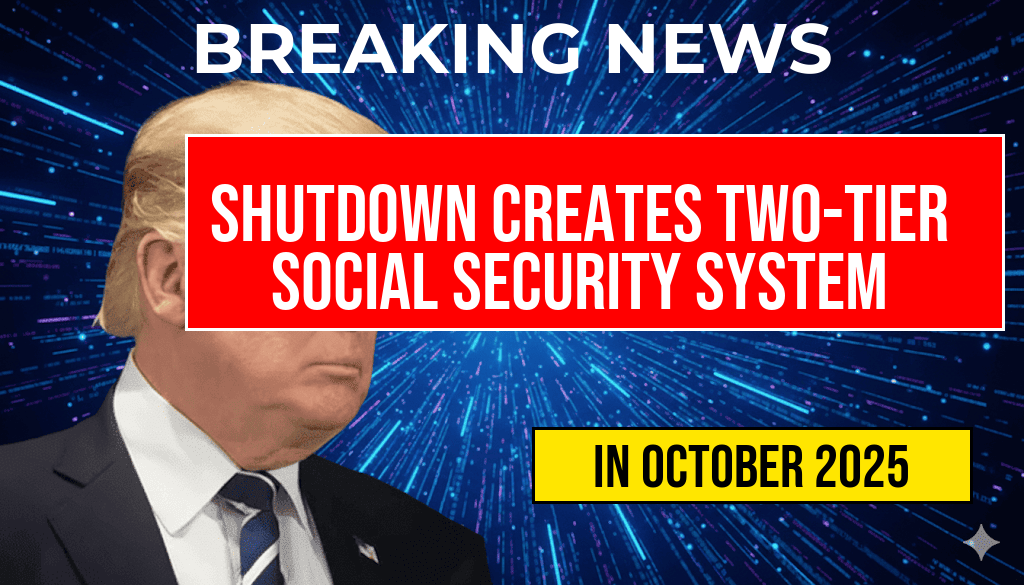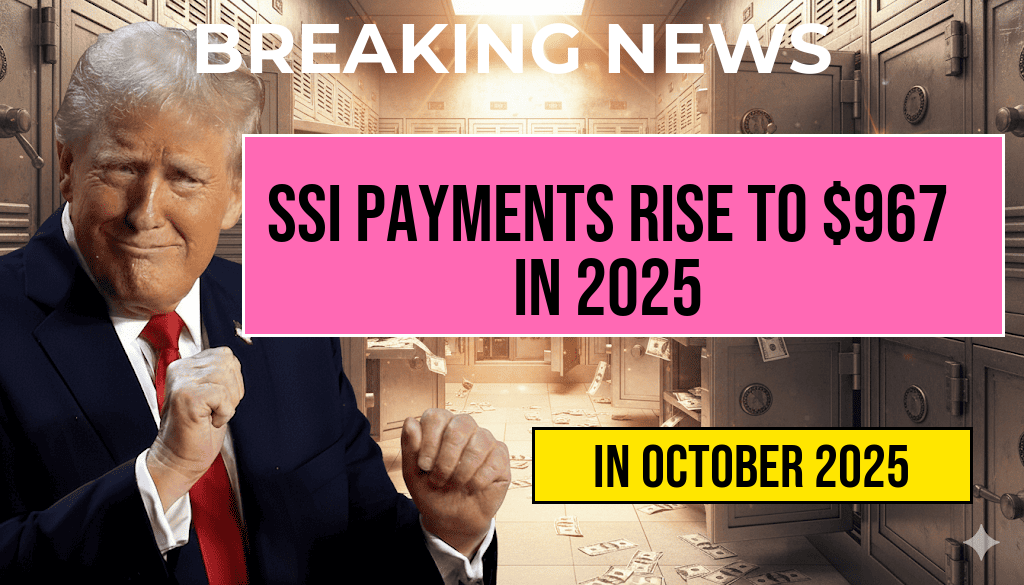The ongoing government shutdown has led to a stark division in how Americans access social services, creating what experts are now calling a two-tier system. While current Social Security recipients continue to receive their benefits uninterrupted, new applicants face a complete freeze, leaving thousands in limbo. This unprecedented situation stems from the federal government’s inability to pass a funding measure, prompting agencies to implement emergency protocols that favor existing beneficiaries while halting new claims. The disparity raises concerns about the long-term implications for vulnerable populations and the integrity of the social safety net.
The Impact of the Shutdown on Social Security Benefits
For millions of Americans relying on Social Security, the shutdown’s immediate effect has been minimal—benefits are still being processed and delivered without interruption. According to the Social Security Administration (SSA), these payments are considered mandatory and are protected under federal law from disruption during funding lapses. This exemption ensures that retirees, disabled individuals, and their dependents continue to receive financial support without delay.
However, the situation for prospective beneficiaries is starkly different. As the shutdown persists, the SSA has suspended all new Social Security applications, including retirement, disability, and survivor claims. The agency’s online portals and local offices are either closed or operating with severely reduced staff, preventing new claims from being processed. This halt effectively creates a freeze on benefits for those waiting to access the program for the first time.
Legal and Administrative Foundations of the Two-Tier System
Fundamentally, the division arises from the legal distinctions between mandatory and discretionary federal spending. Social Security benefits are classified as mandatory spending, which means they are protected from funding lapses when Congress fails to pass appropriations. Conversely, administrative functions, including processing new claims, are categorized as discretionary spending, making them vulnerable during shutdowns.
During past government shutdowns, similar patterns emerged. The SSA has maintained the distribution of existing benefits, emphasizing their contractual obligation. Yet, new applications and administrative operations are usually paused until appropriations are restored. This approach results in a dual reality: existing recipients are shielded, but those seeking access for the first time face indefinite delays, sometimes extending into months.
Potential Consequences for Applicants and the Broader System
| Aspect | Impact |
|---|---|
| Application Processing | Complete halt, leading to significant delays in benefits approval |
| Financial Stability | Potential hardship for individuals relying on benefits to meet basic needs |
| Long-Term Coverage | Possible backlog affecting future beneficiaries and system integrity |
| Administrative Functionality | Reduced capacity to verify eligibility and conduct necessary assessments |
Many advocates warn that the delay could exacerbate financial insecurity among seniors and disabled persons who depend on timely benefits. For individuals awaiting approval, the freeze complicates planning and raises fears of prolonged hardship. Additionally, the backlog could strain the SSA’s resources once funding resumes, potentially causing further delays in processing claims.
Political and Economic Ramifications
The shutdown underscores deeper political divisions over federal spending priorities. Critics argue that the inability to pass funding legislation reflects broader governance challenges, with social programs caught in the crossfire. Economists warn that extended delays in new Social Security benefits could dampen consumer spending and economic growth, especially among vulnerable populations who rely heavily on these payments.
Meanwhile, lawmakers are under pressure to find a resolution. Some call for emergency measures to ensure that new applicants are not left stranded, emphasizing the importance of protecting the integrity of social safety programs. Others contend that the shutdown highlights the need for reforming how social benefits are administered and funded to prevent future disruptions.
Resources for Those Affected
- Social Security Administration: https://www.ssa.gov
- U.S. Government Shutdown FAQ: https://www.congress.gov/help/faq-government-shutdown
- Policy Analysis on Social Security Funding: https://en.wikipedia.org/wiki/Social_Security_in_the_United_States
The situation exemplifies how political impasses can create tangible hardships for millions, underscoring the importance of stable funding mechanisms for essential social programs. As the shutdown continues, affected individuals and policy experts alike watch closely for any signs of resolution that could reopen avenues for new applicants and restore full operational capacity to the SSA.
Frequently Asked Questions
What is the impact of the government shutdown on existing Social Security recipients?
Existing Social Security recipients will continue to receive their benefits without interruption during the government shutdown, ensuring their payments remain protected.
How does the government shutdown affect new Social Security applicants?
New Social Security applicants face a complete freeze, meaning their applications will not be processed until the government reopens, delaying potential benefits.
Why is there a two-tier system created by the shutdown?
The two-tier system arises because existing beneficiaries are prioritized and protected, while new applicants experience a freeze due to limited processing resources during the shutdown.
Will disability and retirement benefits be affected by the shutdown?
Disability and retirement benefits for current recipients will continue to be paid, but processing of new claims or applications will be temporarily halted until the government resumes normal operations.
What should people planning to apply for Social Security do during the shutdown?
Individuals planning to apply for Social Security benefits should be aware that their applications may be delayed. It is advisable to stay updated through official channels and prepare for potential processing delays.





